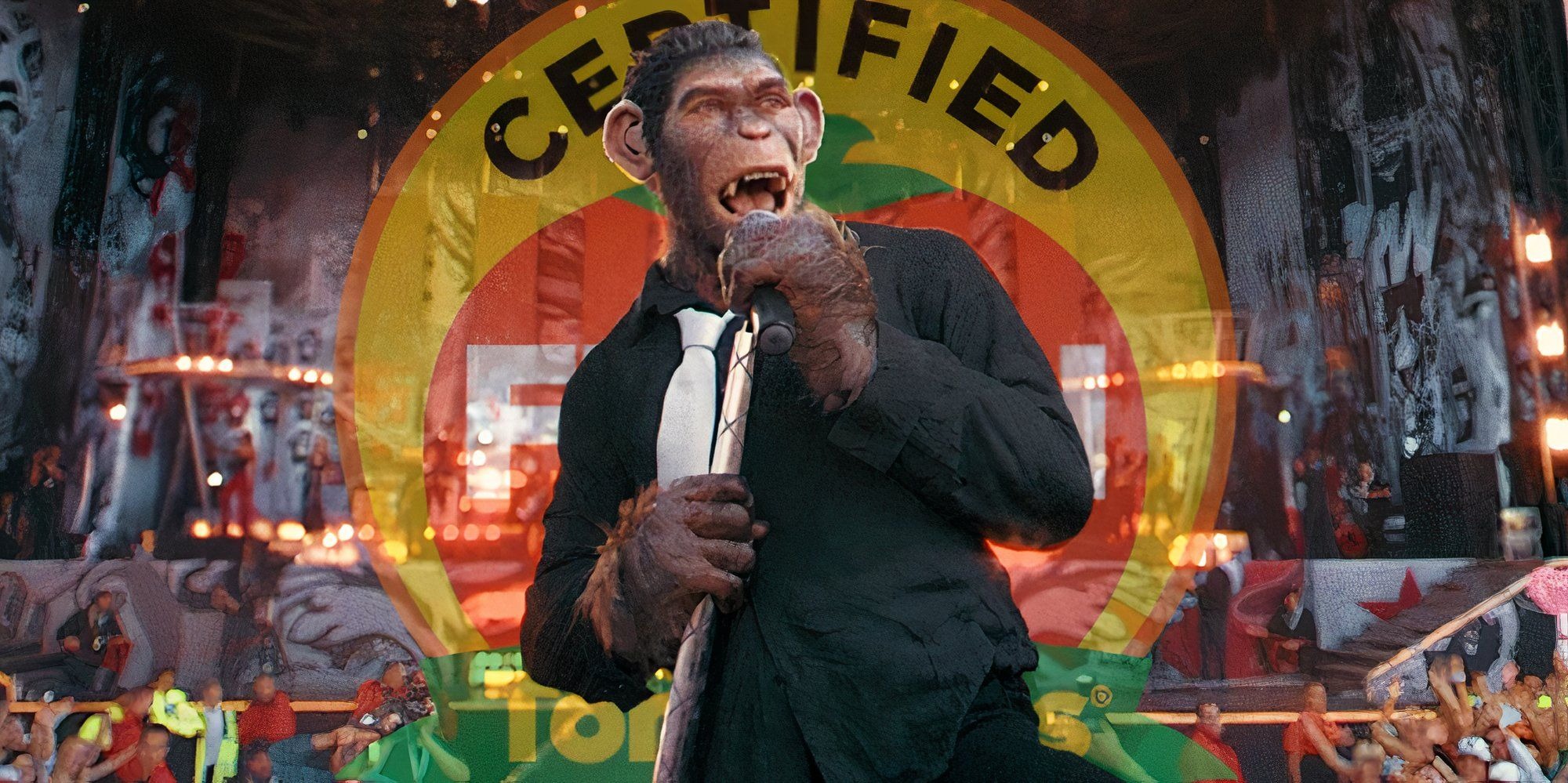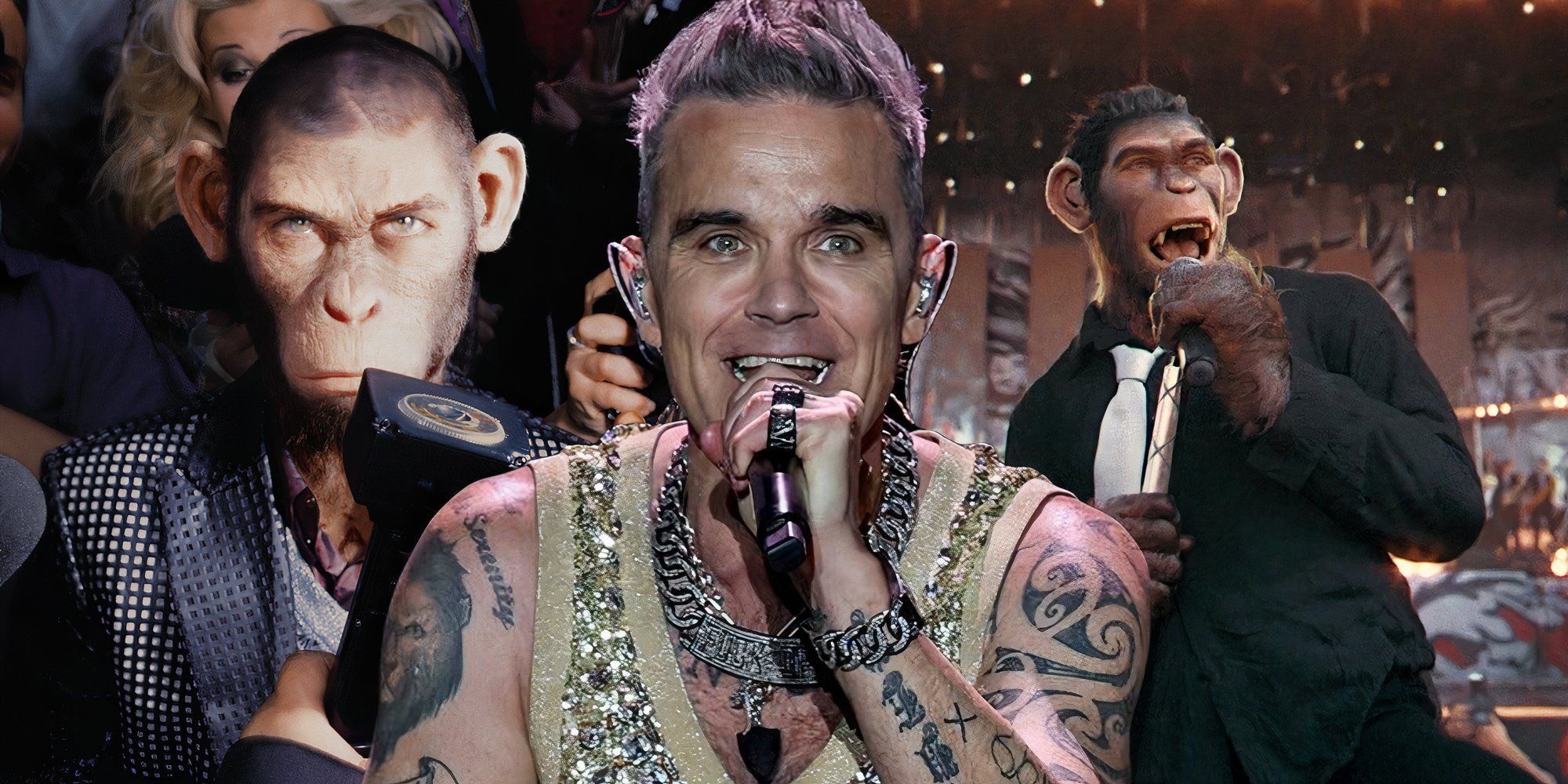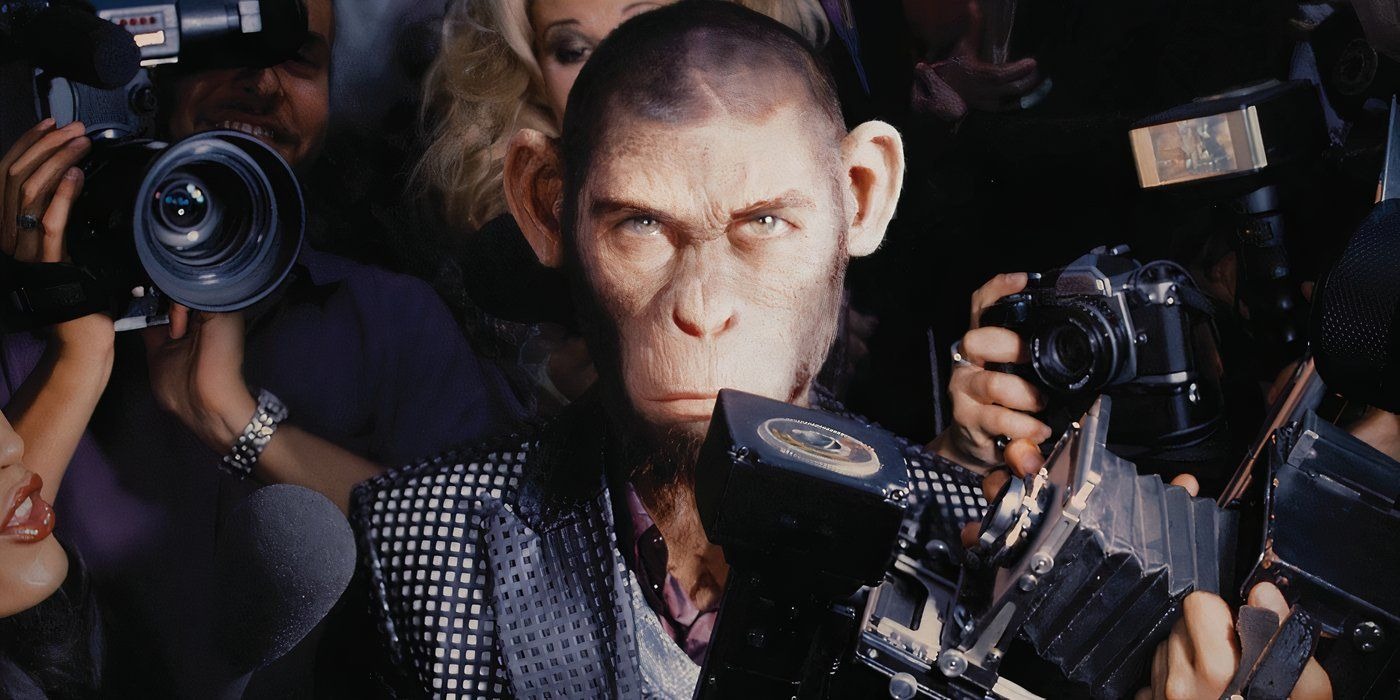The character evolution of Robbie Williams forms the emotional core of Better Man, a musical biopic chronicling the rise of this UK pop star. Transitioning from a notorious boy band member to a known figure in British music history, the film presents Robbie’s journey through his own eyes, shedding light on his inner battles and personal demons.
By reimagining Robbie as a chimpanzee, the film visualizes his struggles with self-loathing through harsh portrayals of his younger self. The film employs a variety of visual metaphors that enhance its unique take on the music biopic genre, contributing to its emotional and uplifting conclusion.
While Better Man may take creative liberties with certain historical facts, the narrative remains focused on exploring themes of self-acceptance and personal development. The representation of Robbie and his journey is crucial to understanding the film’s message.

Robbie Williams’ Self-Reflection in the Ending of Better Man
In the finale of Better Man, Robbie Williams gains insight into his younger self, showcasing his growth throughout the film. The narrative emphasizes how Robbie perceives himself as a “performing monkey” during his career, illustrated through visual representations of his younger self’s insults and judgments.
These younger versions of Robbie appear during his performances, often with disapproving glares, reflecting the distance he has traveled from his past. Critical acclaim surrounds Better Man, with various elements contributing to its positive reception.
The film takes a transformative turn in its final moments, focusing on a rehabilitated Robbie as he performs at the Royal Albert Hall. As he sings “My Way” alongside his father, the younger Robbies transition from being critical to very supportive.
The final vision he encounters embodies the innocent boy he once was, symbolizing his rediscovery of himself and reinforcing the valuable lessons imparted by his Gran.
The Importance of Robbie Williams’ Last Concert in Better Man
Better Man features several concert scenes, with the last one serving as a poignant conclusion to the film. To the exuberant confidence of his earlier performances, Robbie’s final concert is more understated, as he sings from a single stool.
The previous concerts, marked by loud music and energetic movements, reflect his tumultuous career and deteriorating mental state. Conversely, this final show reveals a vulnerable and heartfelt tribute to his mother, alongside a reconciliation with his father.
This last concert is inspired by Robbie’s actual 2001 performance at the Royal Albert Hall, which concluded with him singing “My Way,” albeit without his father.
The film’s closing performance of the song, this time shared with his father, acts as a thematic link to an early scene where they bonded over music in their modest home. The film concludes with this reunion, illustrating Robbie’s journey towards healing his relationship with his absentee father.
Robbie’s Struggles with His Past Selves: Symbolism in Better Man
Throughout Better Man, Robbie’s former selves emerge frequently, reflecting his ongoing battle with clinical depression. These past versions scrutinize him during his career, glaring while negative thoughts plague his mind.
As his fame grows, so does the visibility of these past selves, culminating in a climactic scene where the entire audience morphs into a multitude of Robbies. This confrontation leads to a symbolic battle, requiring Robbie to confront and eliminate these figures from his past.
This conflict highlights his inner turmoil, with self-loathing reaching a critical point. Robbie’s struggle culminates in a violent clash against his younger self, with the brutal imagery reflecting his mental health battles.
The final confrontation, in which he slashes at his own reflection, symbolizes the depths of his despair, occurring shortly before he considers taking his life. This moment makes his eventual reconciliation with his various selves even more impactful during the film’s concluding concert.
Comparative Analysis of Better Man’s Ending and Robbie Williams’ Real Life
At the heart of Better Man lies the complex relationship between Robbie and his family. The film intertwines real-life inspiration with dramatic embellishments for narrative depth.

Depicting Robbie as a young man bonding with his father over music, the story reveals how Peter’s aspirations led him to abandon his family. However, in reality, Peter Williams left when Robbie was just three years old, much younger than the assertive Robbie depicted at that age in the film.
The conflict portrayed in the movie intensifies the already strained relationship between father and son. Although the two did eventually perform together, it did not occur at Robbie’s Royal Albert Hall concert, which inspired the film’s finale. The tension between Robbie and his father mirrors their actual dynamic, yet the film amplifies it for dramatic purposes.
Interpreting the Core Message of Better Man’s Ending
The primary narrative arc of Better Man centers on Robbie Williams’ attempts to reconcile his ambitions with his emotional health. The film showcases the strain on his most meaningful relationships, exacerbated by his struggles with substance abuse. Robbie’s battles with his inner demons are a central theme, portraying him as his own greatest adversary.
However, these relationships also play a critical role in his personal and professional evolution. Robbie’s quest for a hit song serves as a catalyst for his major romance. His Gran’s influence resurfaces after her death, reminding him of her teachings during his darkest moments.
Throughout Better Man, Robbie attempts to mask his feelings with flamboyant performances and a brash demeanor, yet he finds true happiness only when he reaches a place of self-acceptance. This journey encapsulates the film’s core themes of self-acceptance and growth, illustrating the transformation of Robbie’s character.



